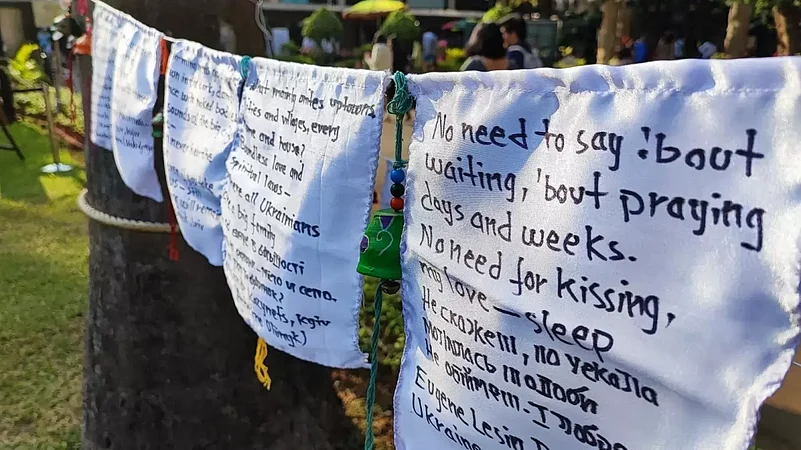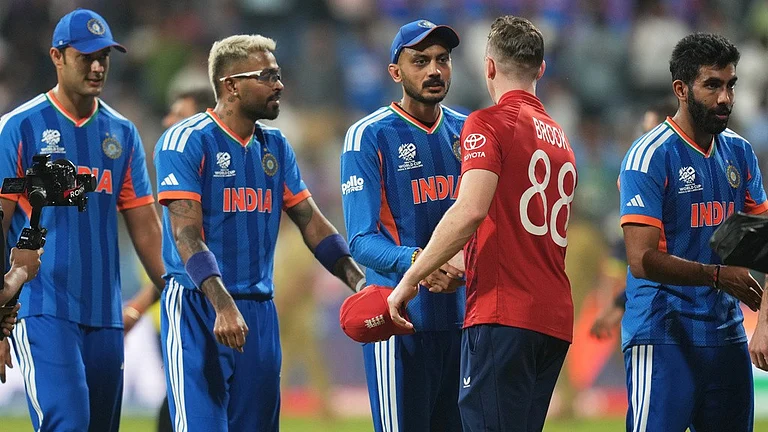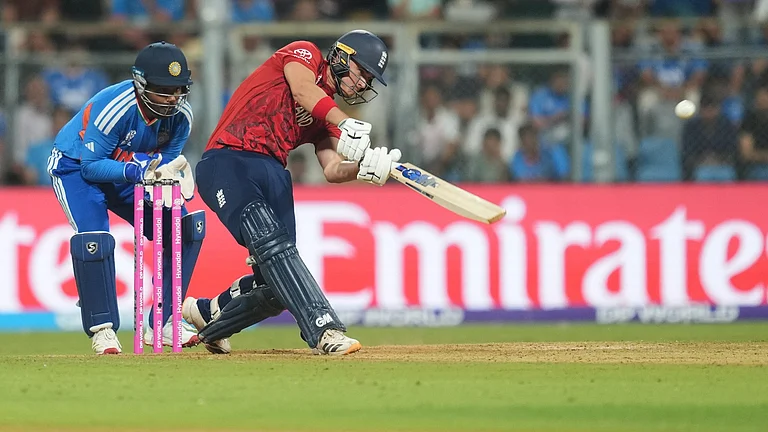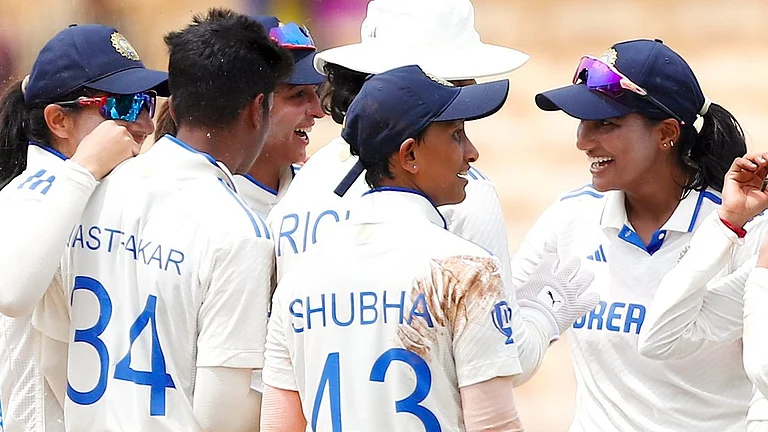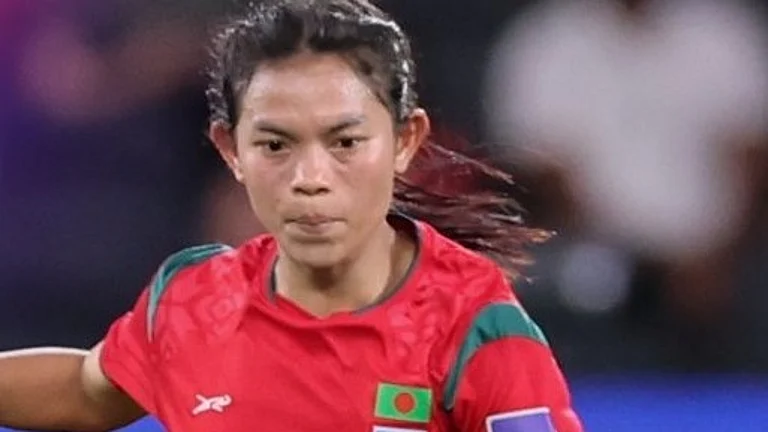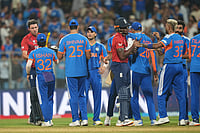Like most Mumbaikars who appreciate its art and culture circuit, the return of the Kala Ghoda Art Festival (KGAF) after the Covid-induced hiatus was a cause for cheer. It is any culture vulture’s festival of choice because it curates some of the best in contemporary literature, art, music, food, the crafts, you name it.
Since it commenced in 1999, KGAF has been the place to discover new faces and voices in the Indian culturescape and this year was no different. As exciting as many of its offerings of 2023 were, one installation stood out for its current form as much as for its future prospects. Kolkata-based poet and artist Sufia Khatoon’s Peace Poetry Flags was special for more than one reason.
Magnanimity and magnitude
I visited KGAF on the day of its inauguration and headed straight to the Chhatrapati Shivaji Maharaj Vastu Sangrahalaya (CSMVS) where part of KGAF takes place. The first thing that struck me as I entered the museum grounds were two giant white satin flags fluttering in the breeze, foregrounding the Indo-Saracenic style museum building. Under the mild February sun, one could take some moments to stand and read a few among the profusion of lines painstakingly hand-written on them. I spotted a few by contributors from India and beyond:
According to one Lopamudra Banerjee from Dallas, Texas, USA: “Peace is a child's white language, inscribed in holy temples and mosques of their beings. Peace is the elemental milk of human kindness that spills over in the face of false prophecies of war.”
An entry from Varshah Saran from Uttar Pradesh’s Meerut read, “Aman ke tirange jab lehraate hain, insaaniyat, tarakki aur mohabbat ke parcham lehraate hain.” (When the tricolour of peace is hoisted, the flags of humanity, prosperity and love fly high.)
Colorado-based Gerry L Leonard’s reckoning with peace seemed rather sombre, as his heart-wrenching lines read: “My father came home without both legs, said, he gave them to another country so they could honour peace.”

As my eyes travelled the length of the flags scribbled with poems of different sizes and languages, I was amazed at the number of different ways in which the idea of peace had been articulated on just one length of cloth. There were several hundred such pieces of cloth —albeit smaller— in the installation and perhaps thousands of such poems on them.
I marvelled at the geographical scope and the generosity of strangers from across the globe who had responded to the artist’s call for a prayer for peace. That’s when the enormity of this project hit me.
Talismans for peace
The seeds of this mammoth undertaking were sown several years ago when Sufia Khatoon was visiting Nathu La in Sikkim in 2017.
Sufia said, “I saw several hundred flags planted in the ground, each denoting a prayer for an individual or a family and was extremely moved. The idea that prayer flags could be used as talismans for protection is something that stayed with me, and, in 2019, I started working on this project.”
The only difference is that while Sikkimese ask for protection, Sufia’s flags seek peace.
The prayer flags’ tradition is commonly associated with Tibetan Buddhism, but it is said to have originated from the older shamanic Bon religion. These multicoloured flags are typically inscribed with sacred symbols and lettering, such as syllables of the mantra “Om Mani Padme Hum” or verses from popular Buddhist sutras. It is believed that hanging them in a space brings good fortune and thus this cultural artefact can be found abundantly in places where there are believers and practitioners of Tibetan Buddhism.

But unlike the primary colours of Buddhist prayer flags, Sufia’s flags are all white. While white seems like the most obvious choice of colour for a project about peace, it is partly a circumstantial one for Sufia.
She said, “I simply don’t have the budget for coloured cloth. All the material, transport, and installation costs so far have been made by me as a personal expense.”
And costs are just one of the odds she has had to face on this path. As a Muslim woman from a conservative family, putting herself and her vision out there, producing, crowdsourcing, and travelling has been a monumental journey and she is just getting started.
Sufia showcased this installation for the first time in 2020 with 300 flags in her hometown Kolkata in an exhibition titled ‘Rooh-E-Sukhoon’, which also featured mandala paintings and some performance poetry.
At KGAF, the number of her flags has come up to 500.
“I need to get to one million and for that I’ll need to say alive for at least 30-40 more years,” said Sufia laughingly. But the laughter can hardly mask her resolve. “With this project, I want to develop a positive space for our generation to think about peaceful cohabitation with each other, to sustain our world from the violence and hate it has been experiencing lately.”
The phrase ‘labour of love’ is probably the best and only way to describe this one-woman mission.
I walk not alone
She may be alone, but Sufia does not feel lonely. Indeed, in this crowdsourced project, hundreds of people from around the world are with her. She has been collecting poems digitally and personally for about four years now and it is a process that will probably continue for the rest of her life.
Creating a million flags is indeed a tall task, but the responses she has received up to this point makes for a heartening start. Sufia has been asking poets living in India and abroad, both established and hobbyists, to contribute their poems in any language towards her installation. Her simple brief of “four short lines on peace” has inspired people from across the globe to send their poems to her in various language and perspectives.
Sufia’s installation features poems from people living in Philippines, Italy, UK, USA, Ukraine, Japan, Tehran, and India, especially the regions of Kashmir and the Northeast and cities like Delhi, Mumbai, Kolkata, and Hyderabad. There are well-known names like Mustansir Dalvi, Yamini Dand-Shah, and Kiran Bhatt, and also complete newbies. like The languages of these poems include English, Hindi, Bengali, Urdu, Kannada, Hungarian, Malayalam, Japanese, Russian, and even Ukrainian, making it a truly global project.
When telling me about her contributors, Sufia wistfully spoke of one soldier-poet, who lost his life in the ongoing Russia-Ukraine war.
She said, “I wanted this installation to be a living, breathing testimony of people’s need for peace, and hence had included only works of living poets.”
The loss of this life underscores in the saddest yet most poignant manner possible the need for art like this. It reminds us that not just Russia and Ukraine, but perhaps all of us need to pick up, commit to, and incessantly wave that white flag of peace, much like Sufia has.


